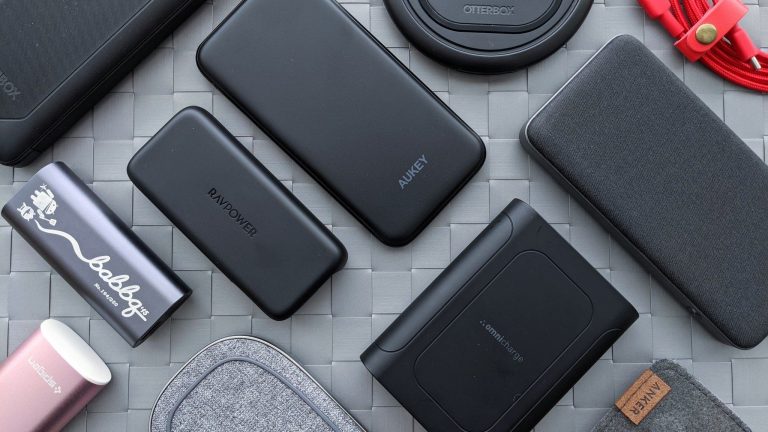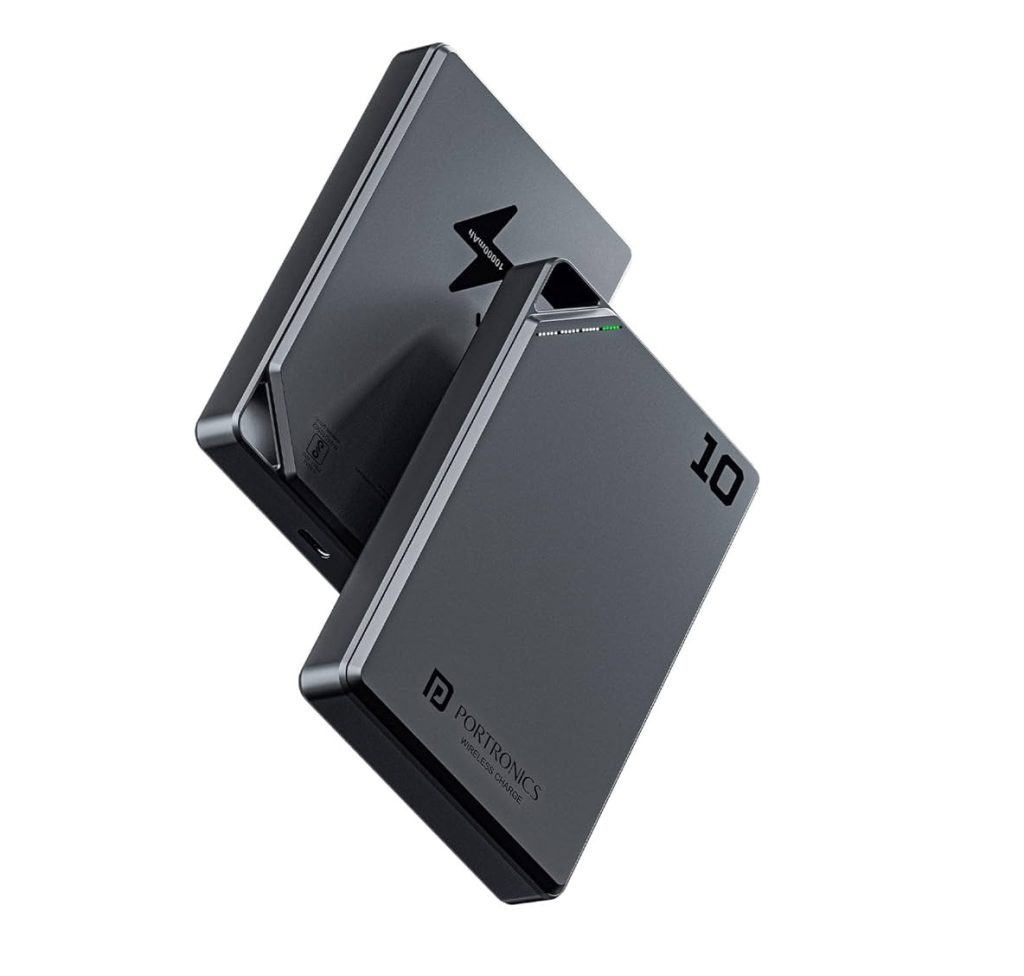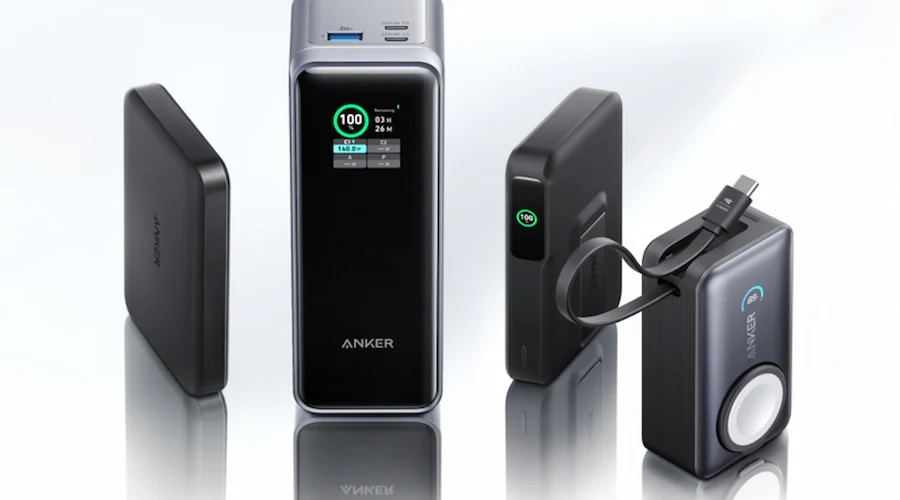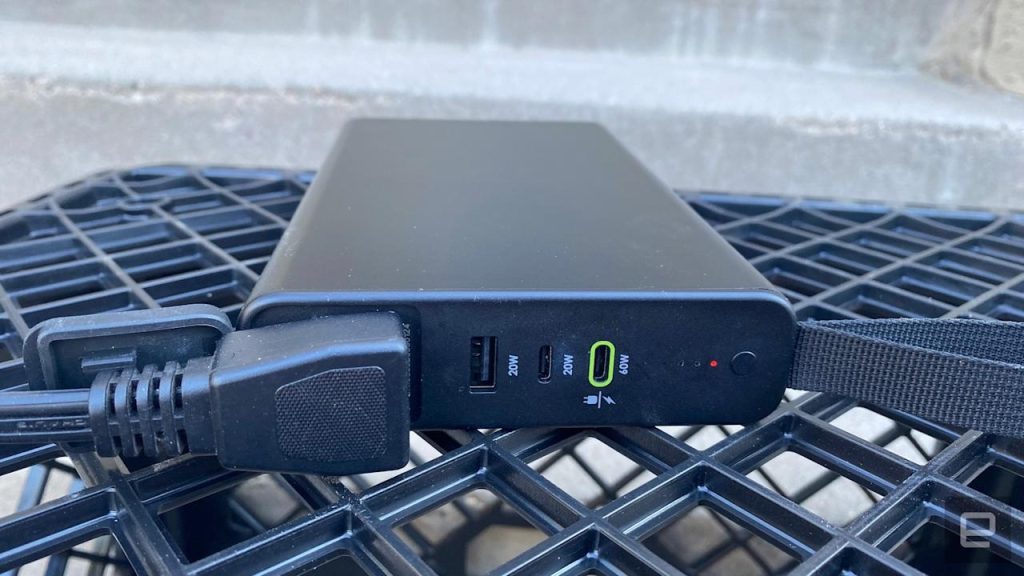If your phone battery dips below 10% in the middle of a road trip or your laptop gasps for power mid-flight, you know that sinking feeling. In 2025, however, running out of battery is practically optional. The latest generation of portable power banks are faster, smarter, and more efficient than ever – some can even charge your laptop and your phone simultaneously without breaking a sweat.
This year, we’re seeing a surge of fast charging power bank options, wireless power bank designs, and even ultra-compact models that fit into your pocket yet still pack enough juice to power a tablet. Brands like Anker and Ugreen are leading the charge (pun intended), while new players are introducing sleek, high-capacity designs aimed at travelers and professionals who live life unplugged.
In this detailed guide, we’ll explore the best power banks of 2025 – whether you need a power bank for smartphones, a power bank for travel, or a power bank with USB-C ports capable of reviving your laptop. By the end, you’ll know exactly which models will keep you charged the longest and why some of them are absolute game-changers.
Section 2: Key trends shaping portable power banks in 2025
If 2024 was the year of bigger batteries, then 2025 is all about smarter energy. Manufacturers are no longer just competing on milliamp-hours (mAh); they’re reimagining how portable power fits into our digital lifestyle. Here are the biggest trends setting the pace this year.
- Smarter charging with AI and adaptive power delivery
Welcome to the era of AI-optimized charging. The best power banks in 2025 aren’t just dumb batteries with a cable – they’re smart devices in their own right. Many now use intelligent power distribution that automatically detects your device’s needs and adjusts output for optimal speed and battery health.
For example, the Anker power bank 2025 lineup features “SmartCharge 2.0,” which balances charging across multiple devices, reducing overheating and extending battery life. It’s like having a tiny power manager that ensures your gadgets get the right amount of juice without overdoing it.
- Compact design meets massive capacity
Gone are the days when high-capacity power banks were brick-sized. In 2025, you’ll find 20,000mAh batteries small enough to slip into your jeans pocket. Advances in lithium polymer tech and graphene-based cells have allowed brands like Ugreen to produce compact power banks that weigh less but perform like powerhouses.
These models are ideal for travelers and digital nomads who want the best of both worlds – portability and performance.
- The rise of wireless and multi-device charging
Qi2 wireless charging is becoming a must-have feature in premium wireless power bank models. Some even support simultaneous wired and wireless charging, letting you top up your phone wire-free while powering a tablet via USB-C.
For instance, a traveler can place their phone on top of a wireless pad while plugging in a laptop – no juggling multiple chargers or cables at the airport lounge.
- Faster than ever with 100W USB-C and GaN tech
The power bank with USB-C is now the industry standard, and 2025 takes it to the next level. Many fast charging power banks support 100W or even 140W PD (Power Delivery), making them perfect for laptops and gaming devices.
Thanks to GaN (Gallium Nitride) components, these chargers stay cool even while pumping out laptop-grade power – a major win for anyone who’s ever fried their fingers on an overheated charger mid-flight.
Section 3: Top picks – the best power banks of 2025 (by category)
With so many options flooding the market, choosing the right portable power bank can feel like picking a new smartphone – specs matter, but so does design, convenience, and brand reliability. Whether you’re a road warrior, digital nomad, or casual user, here are the models that truly deliver in 2025.
- Best overall: Anker Prime Power Bank 25000 (2025 Edition)
Anker has long been a benchmark in the charging world, and its Anker power bank 2025 refresh doesn’t disappoint. The new Prime 25000 model offers 25000mAh capacity, dual USB-C ports (up to 140W PD), and built-in smart display showing live power stats.
It can charge a MacBook Air from 0 to 100% and still have enough left for a smartphone top-up. The matte aluminum body keeps things premium, while its AI-powered temperature regulation ensures consistent performance.
Best for: Users who need a fast charging power bank that balances power, portability, and intelligence.

- Best for travel: Ugreen PowerDot 20000 Pro
Travelers rejoice – Ugreen’s PowerDot 20000 Pro is tailor-made for those who live out of backpacks. Compact, lightweight, and flight-approved, it’s a portable power bank that still packs a punch.
With dual ports supporting 65W PD and 30W QC 4.0, it can charge a laptop and phone simultaneously, while the digital display keeps you informed about remaining juice. The design even includes built-in cable storage, a small but game-changing detail for frequent flyers.
Best for: Travelers and commuters seeking a power bank for travel that’s sleek, reliable, and airline-friendly.
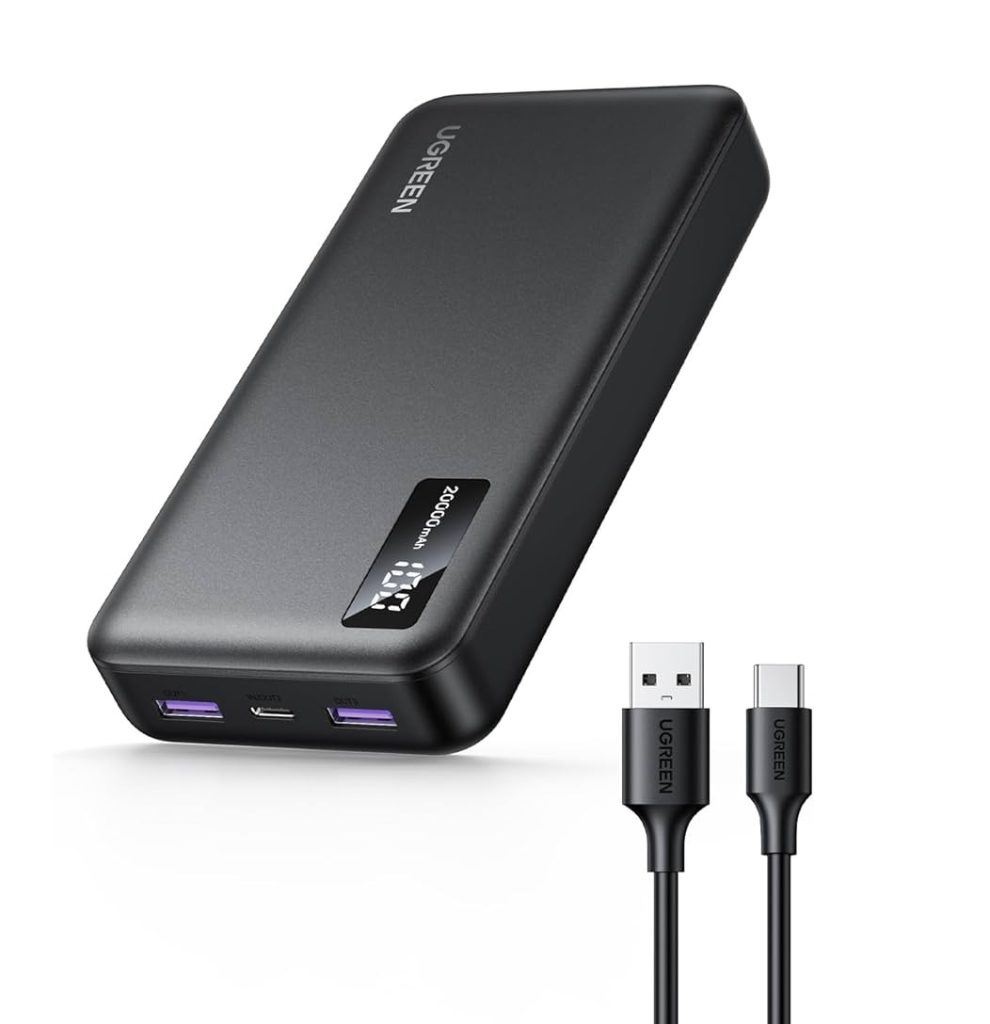
- Best for laptops: Zendure SuperTank Pro 2
Laptop users, meet your new best friend. The Zendure SuperTank Pro 2 delivers a monstrous 26800mAh capacity and up to 200W output, enough to power even a MacBook Pro or gaming laptop.
It’s rugged yet stylish, with an OLED screen for real-time output data. This is the best power bank for laptops hands down, blending industrial design with serious tech muscle.
Best for: Professionals, digital nomads, and heavy-duty users needing maximum power on the go.
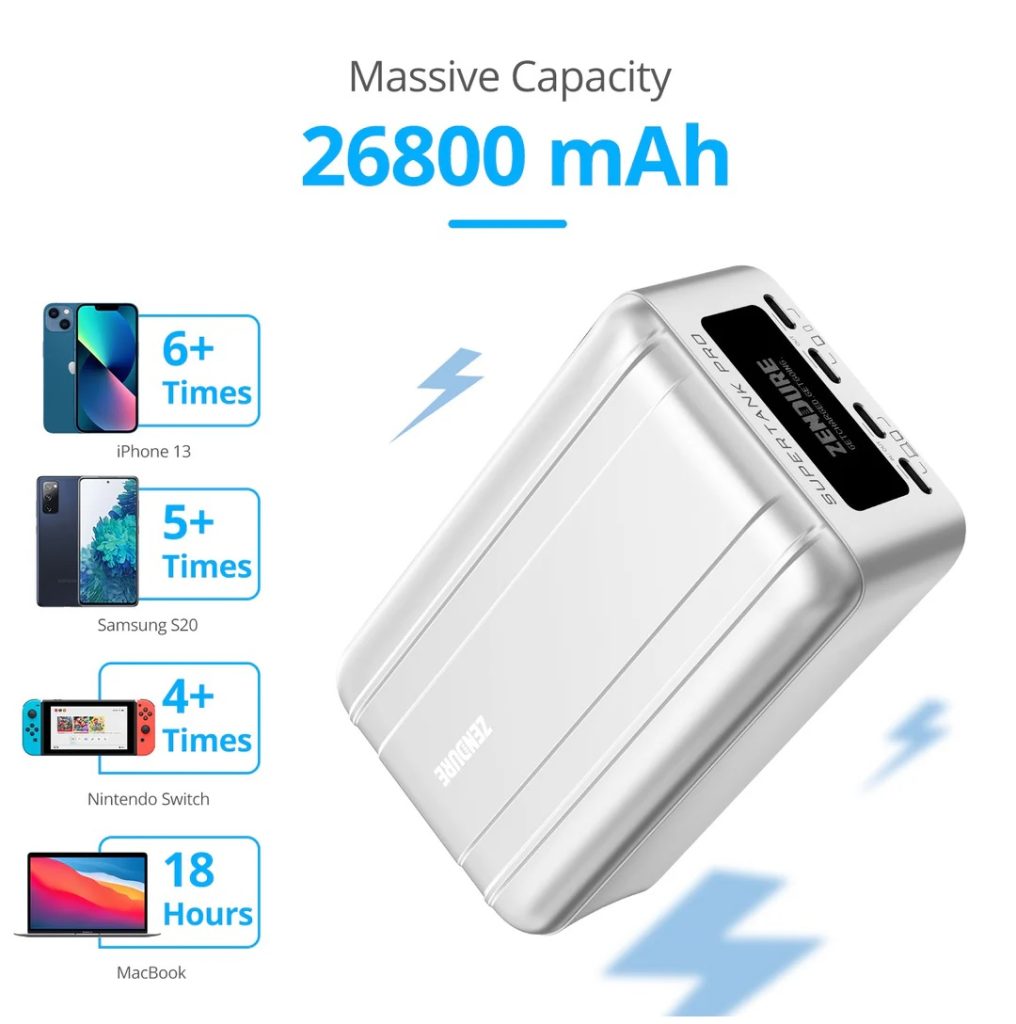
- Best for smartphones: Baseus Magnetic Air 10000 Qi2
If you love wireless charging, the Baseus Magnetic Air 10000 Qi2 might just be your new everyday carry. Supporting the latest Qi2 standard and 15W wireless output, it magnetically snaps to the back of your smartphone for seamless charging.
It’s a compact power bank with solid 10000mAh capacity, USB-C fast charge, and pass-through charging – ideal for topping up your phone during meetings or while navigating with GPS on the go.
Best for: Anyone seeking a power bank for smartphones with wireless convenience and fast charge support.
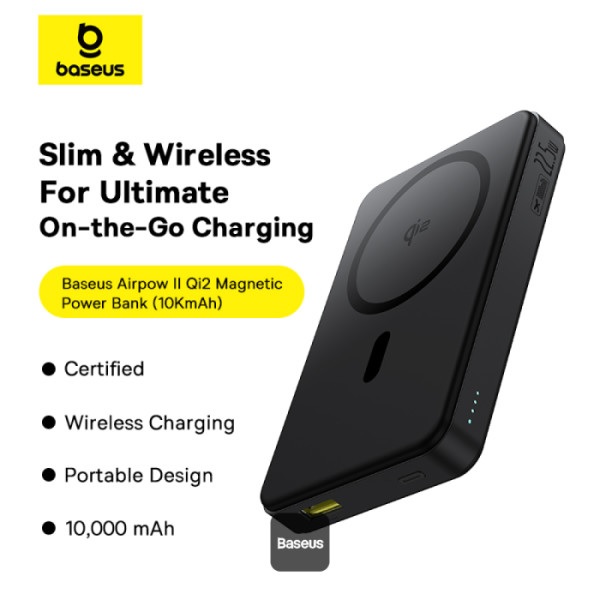
- Best high-capacity option: Romoss Titan 40000 Max
When you need raw endurance, the Romoss Titan 40000 Max is your go-to high capacity power bank. Boasting a huge 40000mAh cell and triple-port output (100W USB-C + dual USB-A), it can recharge a phone ten times over or keep a laptop alive through a weekend camping trip.
Despite its size, it uses next-gen lithium cells that charge themselves faster than older models. Perfect for long journeys or emergency preparedness kits.
Best for: Power users who want a long lasting power bank that just won’t quit.
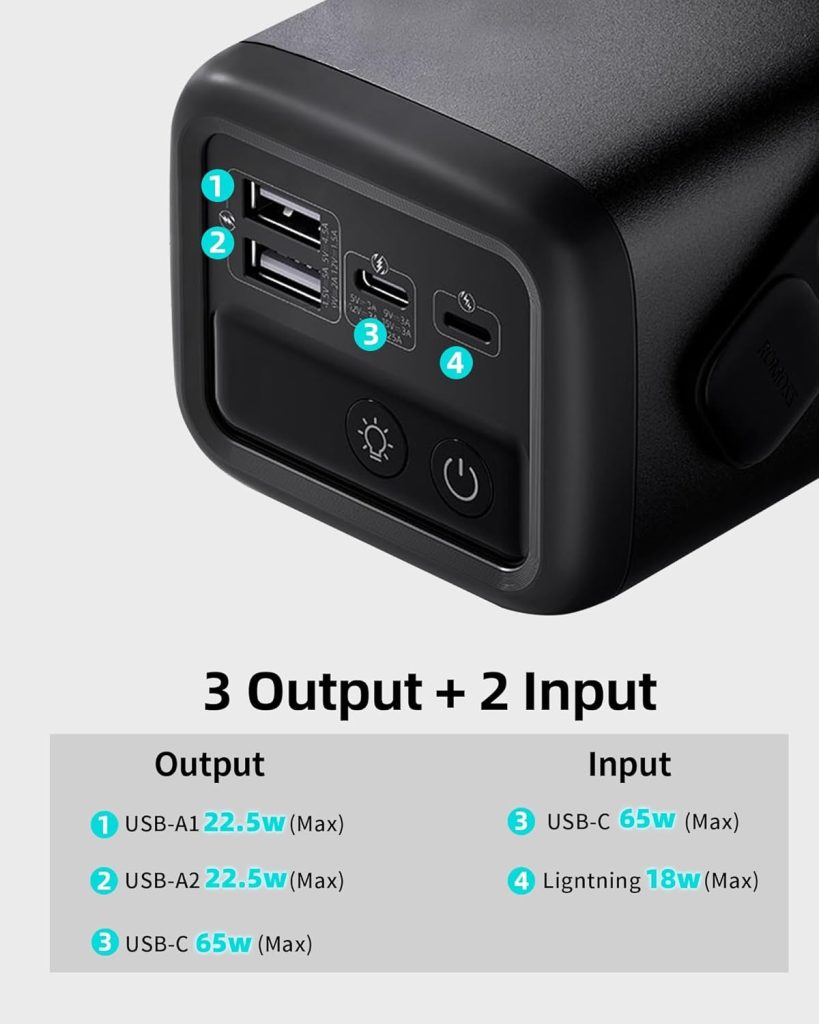
Section 4: Buying guide – how to choose the right power bank for your needs
Choosing the perfect power bank in 2025 isn’t just about grabbing the one with the highest number on the box. Capacity matters, sure, but so do the charging speed, port type, weight, and even flight regulations. Let’s break it down.
- Capacity vs. portability
Power banks are measured in milliamp-hours (mAh), and the rule of thumb is simple – the bigger the number, the longer your devices stay charged.
- 5000–10000mAh: Ideal for quick top-ups and compact power bank models. Great for smartphones and smartwatches.
- 10000–20000mAh: A solid mid-range, balancing size and stamina. Perfect for travelers who need a portable power bank without carrying extra weight.
- 20000mAh and above: These are the high capacity power bank monsters, built for laptops, tablets, and long trips.
If you travel often, remember: most airlines only allow batteries up to 27000mAh (100Wh) in carry-on luggage.
- Charging speed – how fast is fast enough?
Look for Power Delivery (PD) and Quick Charge (QC) support. A fast charging power bank with at least 30W PD can rapidly top up most phones, while 65W or more is needed for laptops.
Newer models with USB-C PD 3.1 can charge a MacBook or even a Steam Deck in under two hours. Some power banks also feature quick charge power bank compatibility for devices like Samsung Galaxy or Google Pixel, delivering tailored current output.
- Port options and versatility
The golden rule: more ports = more possibilities.
- USB-C: The must-have in 2025 – both for input and output.
- USB-A: Still useful for older devices.
- Wireless pad: Great for quick drops and top-ups without cables.
If you’re carrying multiple gadgets – a phone, earbuds, smartwatch, and laptop – go for a model with at least two USB-C ports and one USB-A.
- Build quality and safety features
Cheaper power banks can be tempting, but safety and durability are worth paying for. Look for models with:
- Over-voltage and short-circuit protection
- Temperature regulation sensors
- Fire-resistant casing
Premium options like the Anker power bank 2025 or Ugreen power bank series include smart safety chips that protect your gadgets and themselves.
- Bonus features worth having
Some 2025 models go beyond the basics:
- Digital display: Shows power levels and charging rates.
- Pass-through charging: Lets you charge your power bank while it charges your devices.
- Built-in cables: Fewer things to forget on your next trip.
- Solar trickle charging: Useful for outdoor enthusiasts.
Section 5: The future of portable charging – what’s coming next in 2026 and beyond
Just when you think power banks have reached their peak, the industry pulls another surprise. If 2025’s best power banks are impressive, what’s on the horizon will make them look almost vintage. Here’s a glimpse into what’s charging up for the near future.
- Graphene and solid-state breakthroughs
Battery technology is about to get a major upgrade. Graphene and solid-state cells promise faster charging, longer life, and higher density – all while staying cooler. Imagine recharging a long lasting power bank in under 30 minutes or having a 20,000mAh device the size of a credit card.
Brands like Ugreen and Anker are already experimenting with these materials, teasing prototypes that could reshape how we think about portable energy.
- Solar and kinetic recharging
Eco-conscious users, rejoice. Solar panels are becoming more efficient and flexible, and a few rugged models now feature integrated solar trickle charging. But that’s not all – researchers are exploring kinetic recharging, where your movement generates energy.
Picture a portable power bank that tops up while it’s clipped to your backpack during a hike. The tech isn’t mainstream yet, but it’s no longer science fiction.
- Integration with wearables and IoT
Future power banks for smartphones will talk to your devices, predicting when they’ll need power and optimizing distribution automatically. Some prototypes already connect via Bluetooth to show analytics in companion apps – battery health, usage patterns, and eco mode settings.
Soon, your smartwatch or earbuds case might borrow a bit of juice directly from your phone – or vice versa – thanks to reverse charging ecosystems.
- Wireless everywhere
Wireless charging isn’t stopping at phones. The next generation of wireless power banks will support multi-device pads and magnetic alignment for everything from cameras to game controllers. The Qi2 standard has laid the groundwork, and 2026 will likely see more universal compatibility than ever before.
- Sustainability and recyclable design
Consumers are increasingly demanding eco-friendly electronics. Expect to see bioplastic housings, recyclable cells, and modular batteries that can be replaced or upgraded. The days of throwing out an entire power bank because one cell died are (thankfully) numbered.
Companies are also adopting carbon-neutral production processes, making your charging habit a little kinder to the planet.
Conclusion: Stay charged, stay connected
Whether you’re traveling across continents, working from a café, or just surviving another day of endless Zoom calls, a dependable power bank is the unsung hero of modern life.
In 2025, the best models combine power, intelligence, and design – no longer just accessories, but essential tools for staying productive and connected wherever life takes you.
From the Anker power bank 2025 lineup to Ugreen’s compact travel chargers, there’s something for every lifestyle and every gadget bag. The key is knowing what you need: capacity, speed, or portability – and investing in a power companion that’s built to last.
Because in the digital age, being out of power isn’t an option – it’s just poor planning.
Before you add another gadget to your carry-on, let’s clear up some of the most common questions people ask about the best power banks in 2025 – plus a few quick buying tips to keep your next purchase smart and future-proof.
FAQ: Everything you need to know about portable power banks in 2025
- What’s the difference between a regular and a fast charging power bank?
A regular power bank typically offers 10–15W output, while a fast charging power bank supports 30W, 65W, or even 100W PD (Power Delivery). This makes a massive difference when charging laptops or newer smartphones that support high-speed charging protocols. - How long should a power bank last?
A quality long lasting power bank should retain 80% of its capacity after 500–800 full charge cycles. Premium brands like Anker and Ugreen use advanced lithium-polymer or graphene cells to ensure long-term reliability. - Can I carry a power bank on a plane?
Yes, but only in your carry-on luggage. Most airlines allow power banks up to 100Wh (around 27000mAh). Anything larger requires airline approval. Models like the Ugreen PowerDot 20000 Pro are designed to comply with these limits for travelers. - Do I need a USB-C power bank in 2025?
Absolutely. A power bank with USB-C supports faster charging and universal compatibility. It’s now the standard port across smartphones, laptops, and tablets. Many 2025 models even include dual USB-C outputs for multi-device charging. - Are wireless power banks safe?
Yes, modern wireless power banks follow Qi2 safety protocols and come with temperature control and over-voltage protection. Just make sure your device supports wireless charging for optimal performance. - What’s the best power bank brand in 2025?
While Anker and Ugreen continue to lead with innovation and reliability, brands like Zendure, Baseus, and Romoss have stepped up with feature-packed alternatives. The “best” option ultimately depends on your usage – travel, work, gaming, or emergency backup.

